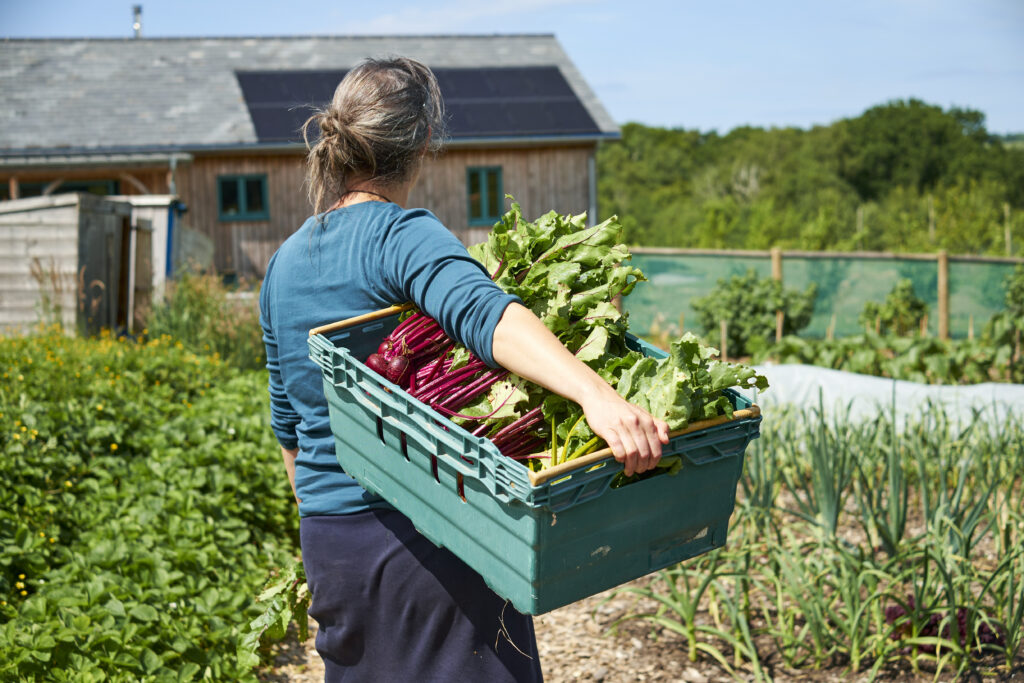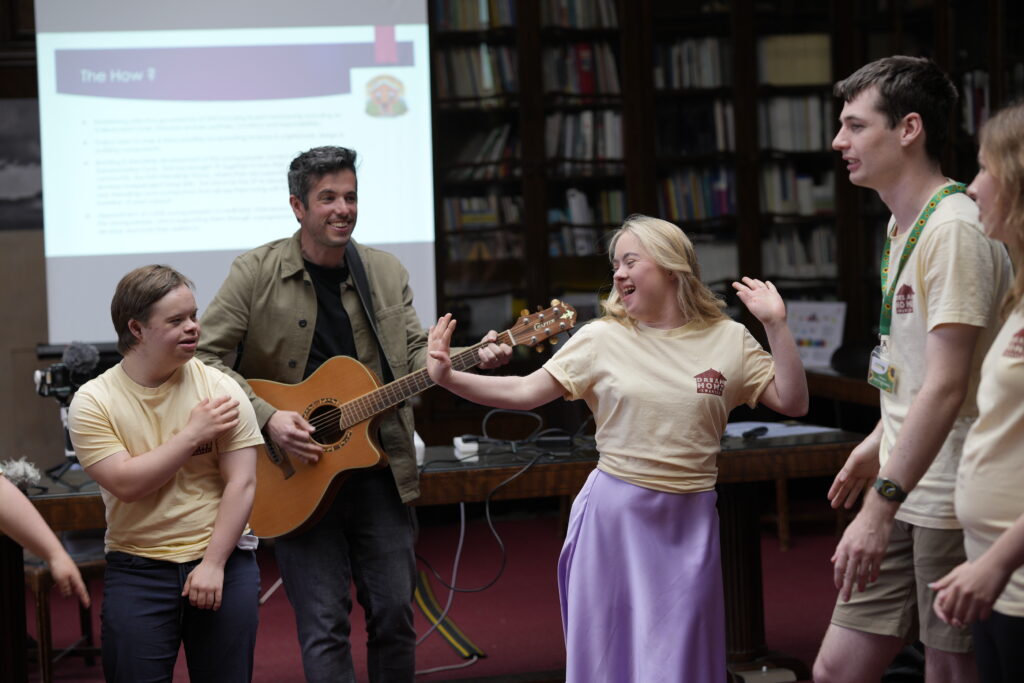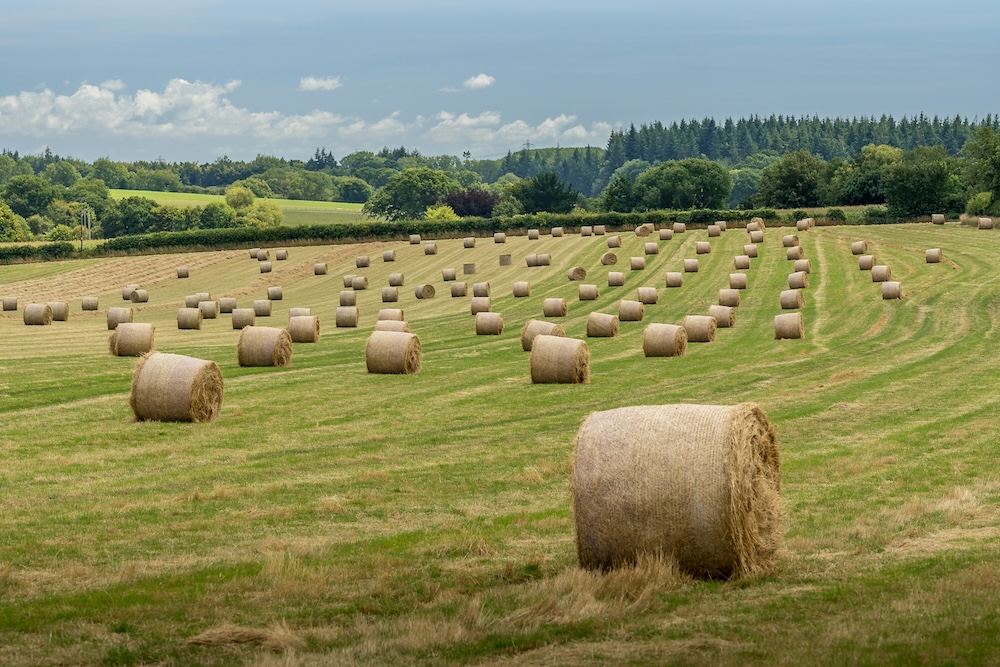Erica Vernon examines the challenges and opportunities of living with a lower ecological footprint.
It’s hard to know how much impact you are personally having on the planet through your consumption of goods and services.
As well as the carbon footprint, there are other aspects of resource consumption to consider, including the question of how fast the earth can replenish the resources we use. The Ecological Footprint is a key sustainability metric which incorporates these considerations, and in Wales it is also the 14th National Well-being Indicator defined by the Well-being of Future Generations Act (2015).
A ‘One Planet’ Ecological Footprint is the level at which we would be using a fair share of the Earth’s resources – which means the level that can be sustainably used, divided by the number of people on the planet – and this is identified as 1.88 global hectares (gha). According to the most recent results, the average footprint of Wales is about 3.28gha per person: if everyone were to live like the average Welsh citizen, we would need much more than a single planet’s worth of resources.
As a condition of being awarded planning permission to build new smallholdings in the Welsh countryside, One Planet Development (OPD) residents have to achieve an Ecological Footprint of 2.4gha per person initially, with the ability to reduce that to 1.88gha over time. The One Planet Council, an independent voluntary body, has recently conducted a review of the evidence and found that most OPDs are meeting the “One Planet” Ecological Footprint level well before the Year 5 reporting date. In addition, there are general trends towards further reduced Ecological Footprints over time, probably due to the increase of food production on site and the reduction in off-site transport. Suzanne Pearton-Scale of Willow Farm OPD in Tenby describes her own experience: ‘We have been living a One Planet life for nearly five years and have an extremely low ecological footprint. We happily made sacrifices such as microwaves, hairdryers and the latest coffee machines to live with a one planet footprint as we believe in sustainable living for our future generations.’
Unfortunately, no data more recent than 2011 is available for the national footprint of Wales, despite its status as a National Well-being Indicator.
But Suzanne is quick to add that lower consumption does not need to mean hardship: ‘however, this doesn’t mean we don’t have a comfortable life.’ This is a key point for policymakers seeking to learn from the One Planet experience. Done carefully, the ecological impact of development can be lowered significantly without compromising quality of life. It isn’t obvious that this could be done; after all, lower ecological footprints have often been associated with poverty and deprivation. But the creativity and commitment of residents on One Planet Developments have been harnessed to find efficiencies and innovations in everyday life, to meet and exceed the criteria set by the Welsh Government. Suzanne also mentions that spending less on ecologically damaging products is actually good for their household budget, saying that ‘in light of the cost of living crisis, this is the way forward’, and that living in this way has helped them to feel more connected with the local community.
Robust debate and agenda-setting research.
Support Wales’ leading independent think tank.
Unfortunately, no data more recent than 2011 is available for the national footprint of Wales, despite its status as a National Well-being Indicator. The One Planet Council’s review recommended that there should be a plan to update the national footprint estimate within the next five years, to take account of changing national and international circumstances including inflation, energy prices, and the effects of the Covid-19 pandemic. The ability to determine the ecological impact and sustainability of different choices is of utmost importance and the existence of a significant underpinning research base for the Ecological Footprint makes it an appropriate and rigorous indicator in addition to more specific metrics such as the carbon footprint.
The One Wales: One Planet Sustainable Development Scheme laid out in 2009 articulated an aim for Wales to become a One Planet Nation within a generation, meaning that the average footprint should reduce to a “One Planet” footprint. Yet if Wales is to achieve this goal, this means that essentially all new development must be One Planet Developments in the sense of having a low ecological footprint. There are many different aspects of the ecological footprint and it does not require everyone to live in the same way, but it does require that national choices make it easier for individuals to choose to live a One Planet lifestyle in their own context, whether rural or urban. Thinking about the largest components of individuals’ ecological footprints, this includes innovative ways of living with less energy and resources, public transport and facilities for active travel, incentivising availability of local food, and regulation to promote high quality construction.
Ultimately, this new review highlights both the challenges and opportunities of transitioning to a One Planet lifestyle. Residents’ enthusiastic adoption of innovative technologies and creative lifestyle changes demonstrates that real changes can be made, though many have gone well beyond what might be expected of an average household. We can learn from their successes when crafting new visions for an ecologically sustainable country. Following in their footsteps, we can hope to find ways to square the circle by integrating social and economic progress with a lessening of environmental impact.
All articles published on the welsh agenda are subject to IWA’s disclaimer.





